Agentverse Hosted Agents
Overview
Hosted Agents are cloud-based Agents managed within the Agentverse, enabling developers to deploy and manage Agents without handling infrastructure. These Agents function as lightweight, efficient tasks, resetting global variables after each call. To maintain state across calls, developers must use Agent Storage for stateful behavior.
Developers can start with blank scripts or use customizable templates for common use cases like retrieving stock prices or finding nearby restaurants. Hosted Agents are highly accessible, requiring no local dependencies, and include an agent.py file from which you can develop them straightforwardly.
Let’s explore the process and insights you need to get started with Hosted Agents on Agentverse!
Create Hosted Agents
On Agentverse you can create and host any type of Agent you want to create using the Agents tab.
You can launch a Hosted Agent by clicking the + Launch an Agent button:

Then, select the Create an Agent option:
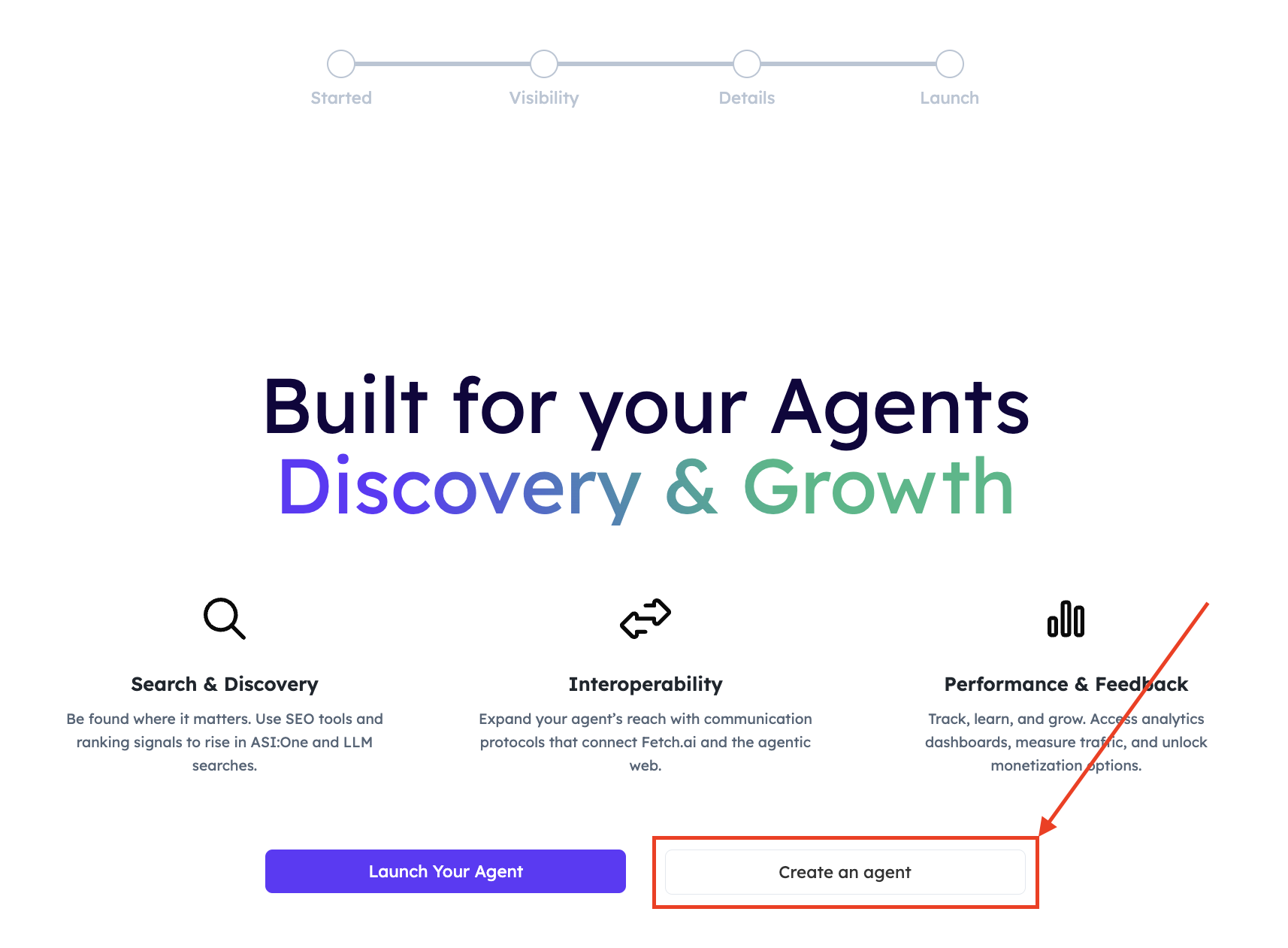
Here, you have multiple templates you can use as a starting point for your Agent application:
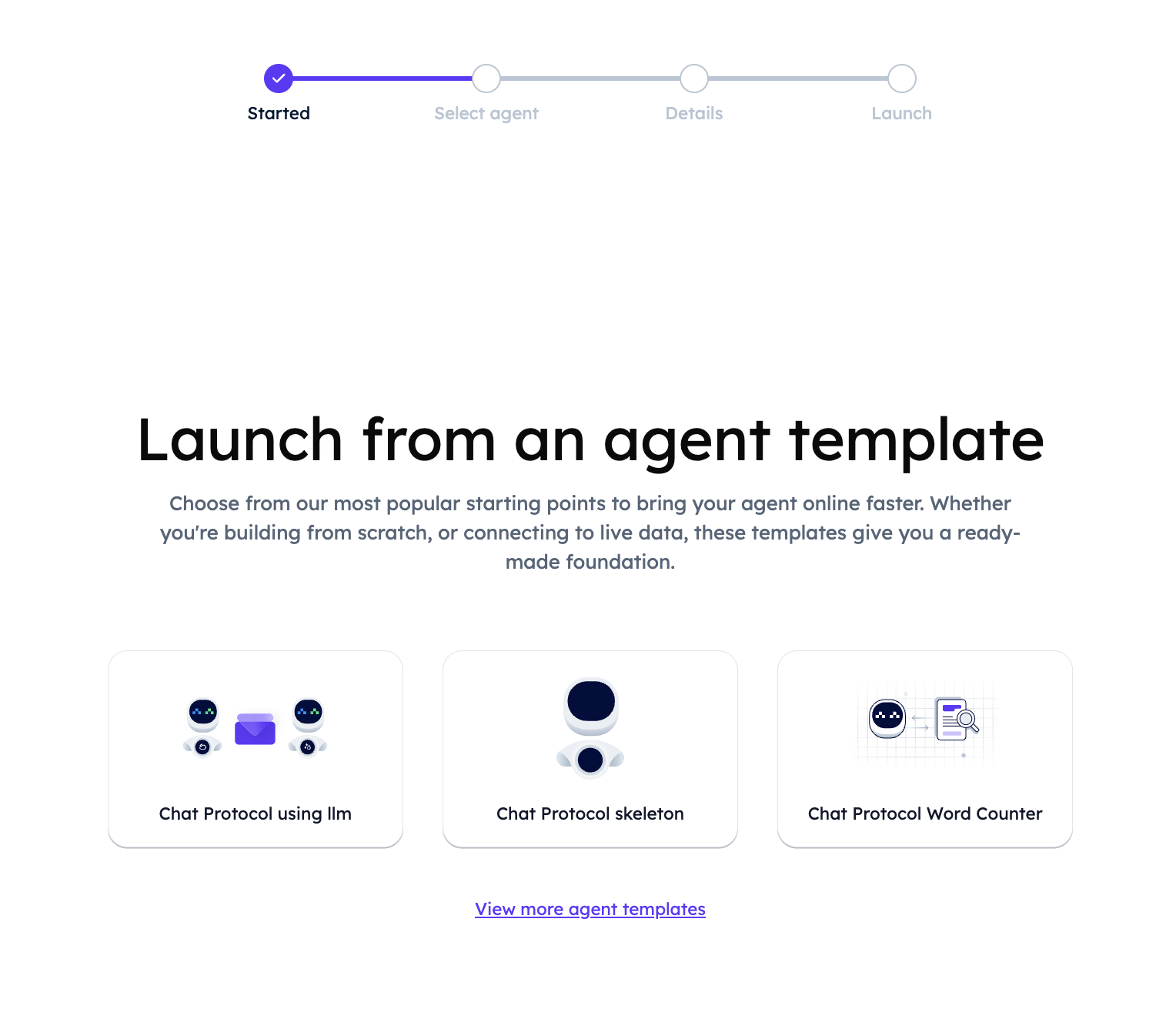
You can choose among the following templates:
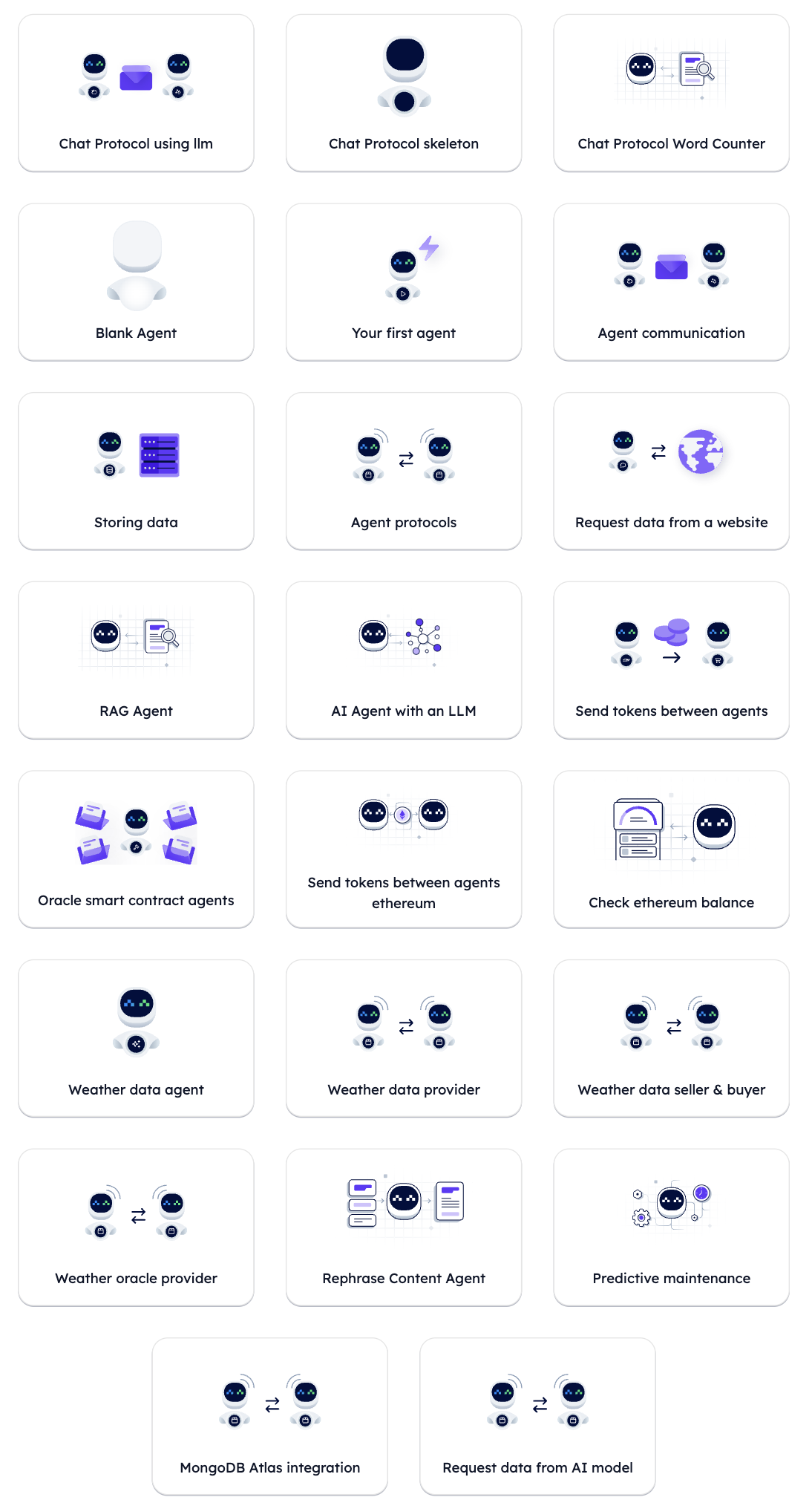
Let’s start with a Blank template. You will need to provide a name for the Agent you wish to create. Once you do so, hit Launch Agent button:
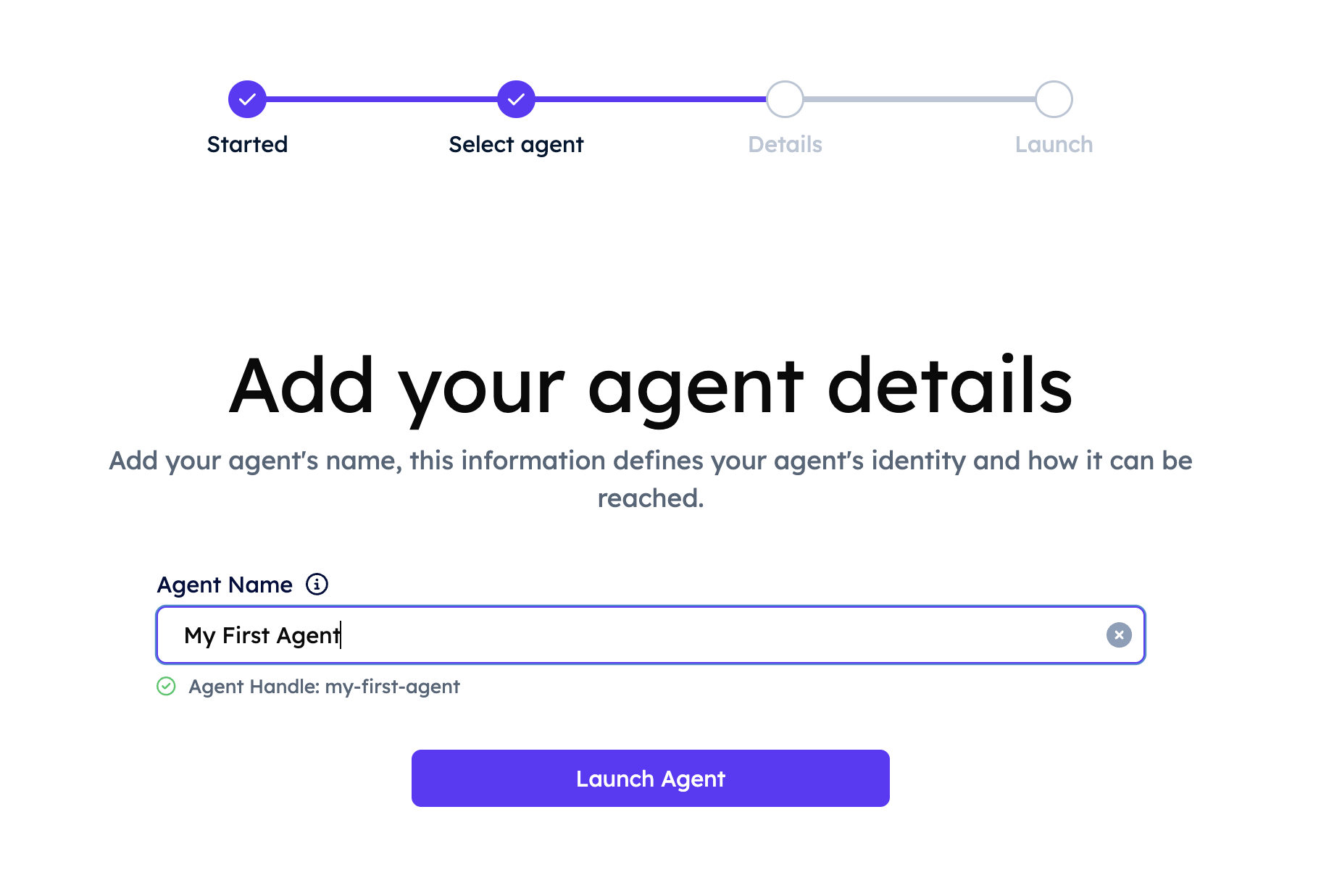
You will be asked to assign some Keywords for the Agent you created. This would help not only to classify your Agent based on its functionalities, but also enhance its discoverability. Assign 3 keywords and click on Lunch My Agent button.
Nice! You successfully launched your first Agentverse Hosted Agent! Start your Hosted Agent creation journey here. Follow the steps above to easily create your first hosted agent with ease. Once you successfully launch it, you will be able to explore the Agent’s Dashboard and edit all the information related to this Agent, including README, location, code, and more. You will also be able to check multiple data about the agent you have just created, including the name and the address of the agent.
Note: for a complete overview on all elements in the Agent Dashboard UI, check out this resource here.
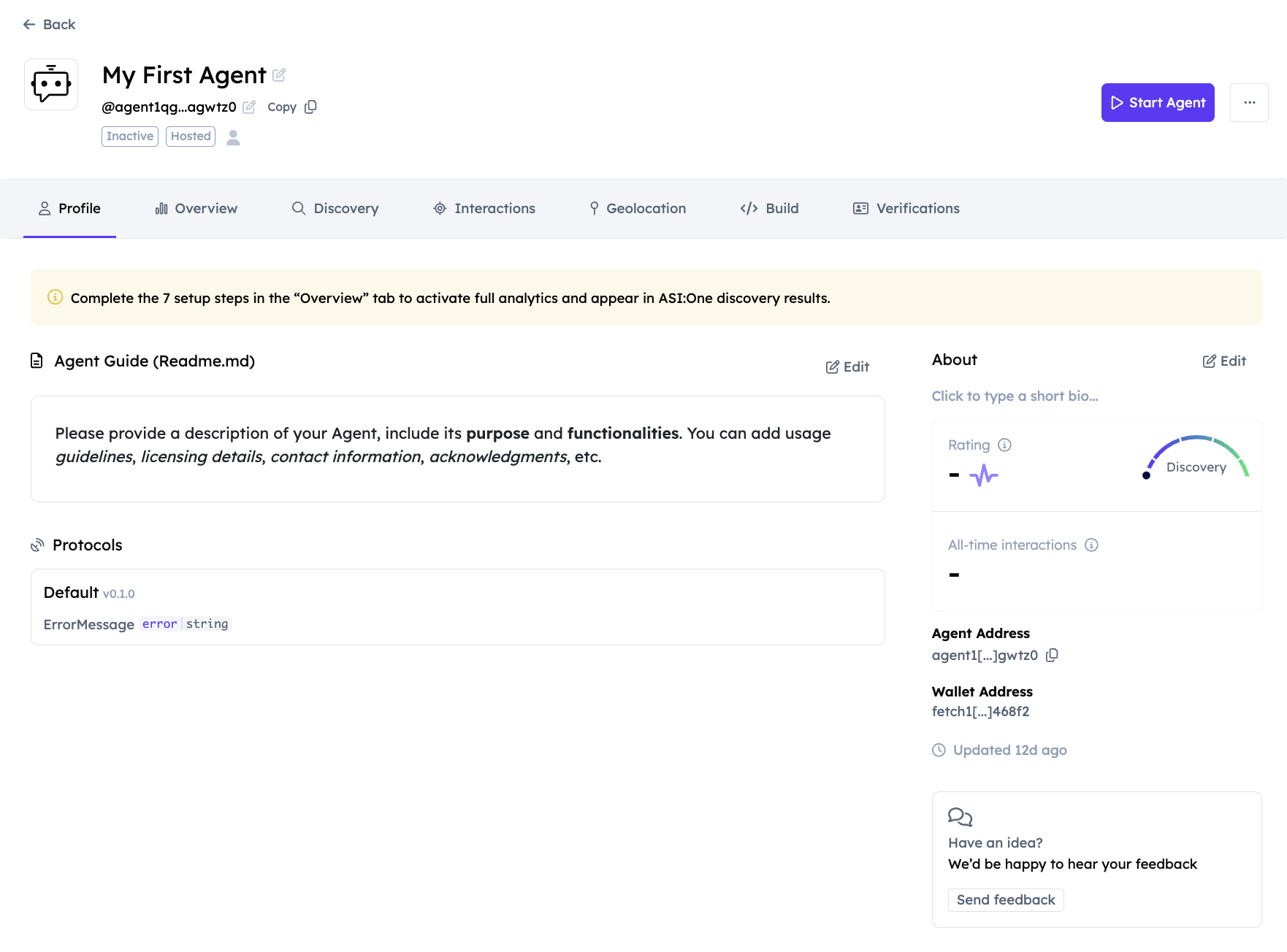
Click on the Build tab and start coding your Agent with ease!
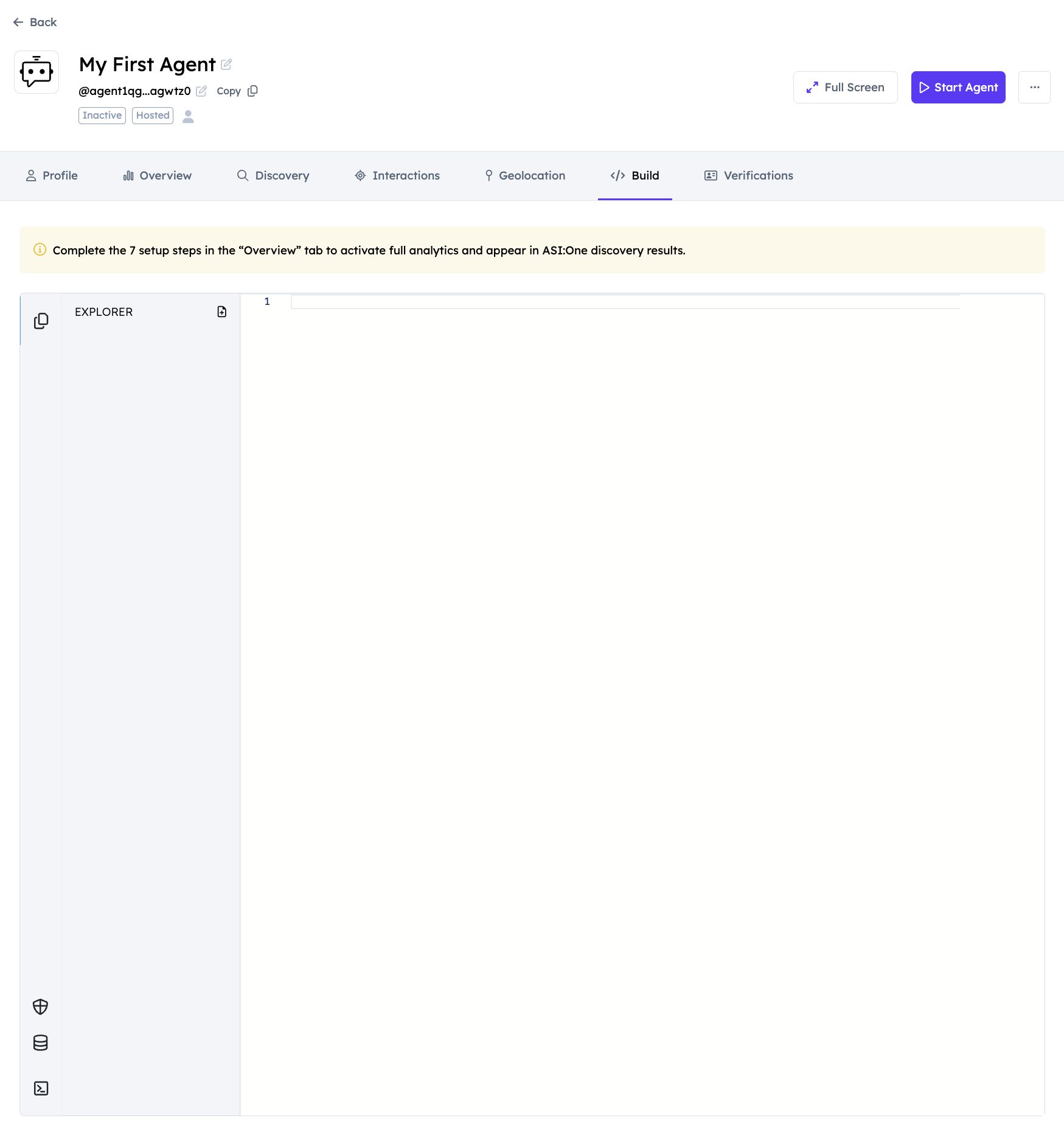
Within the Agent Editor, you can import and utilize a predefined set of modules to develop your ideas. These pre-approved modules offer a diverse range of functionalities, allowing you to build complex Agents. For further information on modules being available within the Agentverse Editor, have a look at the following resource: Agentverse: allowed imports.
What’s next for your agent?
Get started by building your agent, enabling protocols, and optimizing it for search:
Get Discovered
Improve search ranking by updating your README, keywords, and description. These fields help users find, trust, and interact with your agent faster.
Build your Agent
Open the Build tab to add protocols, edit logic, or update flows. Use templates or code directly to define how your agent behaves.